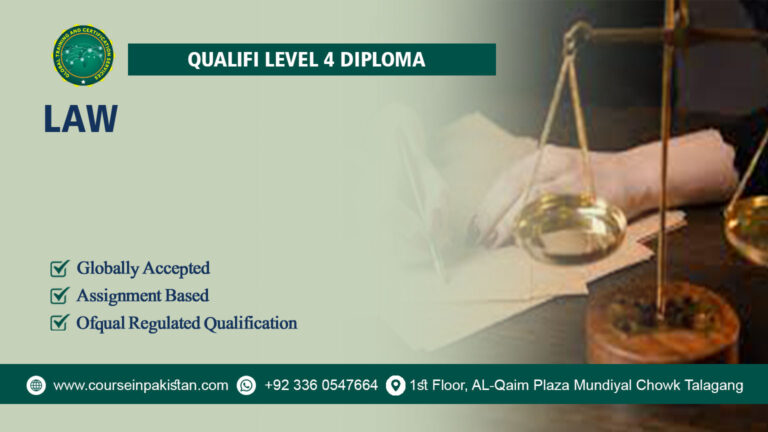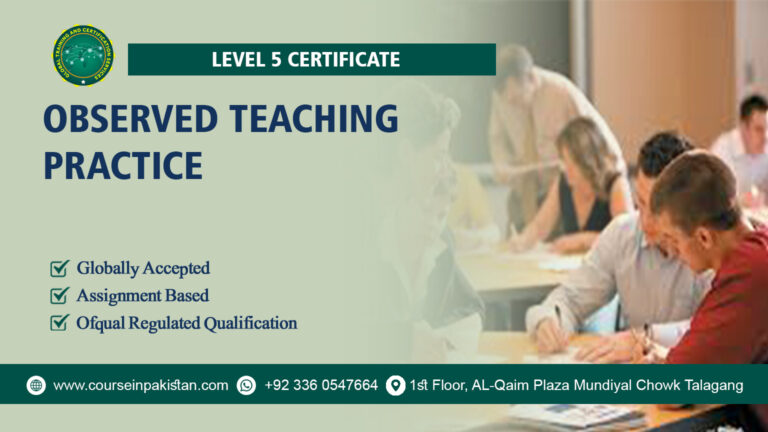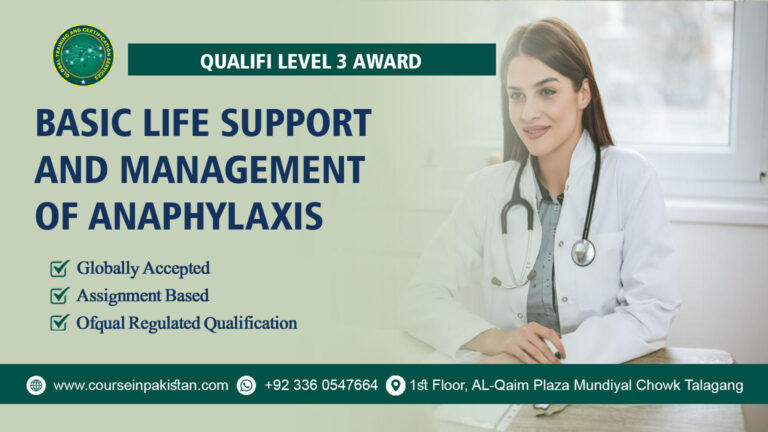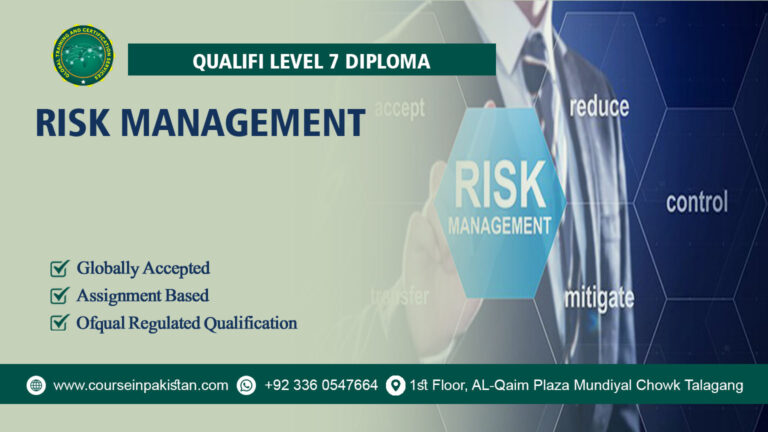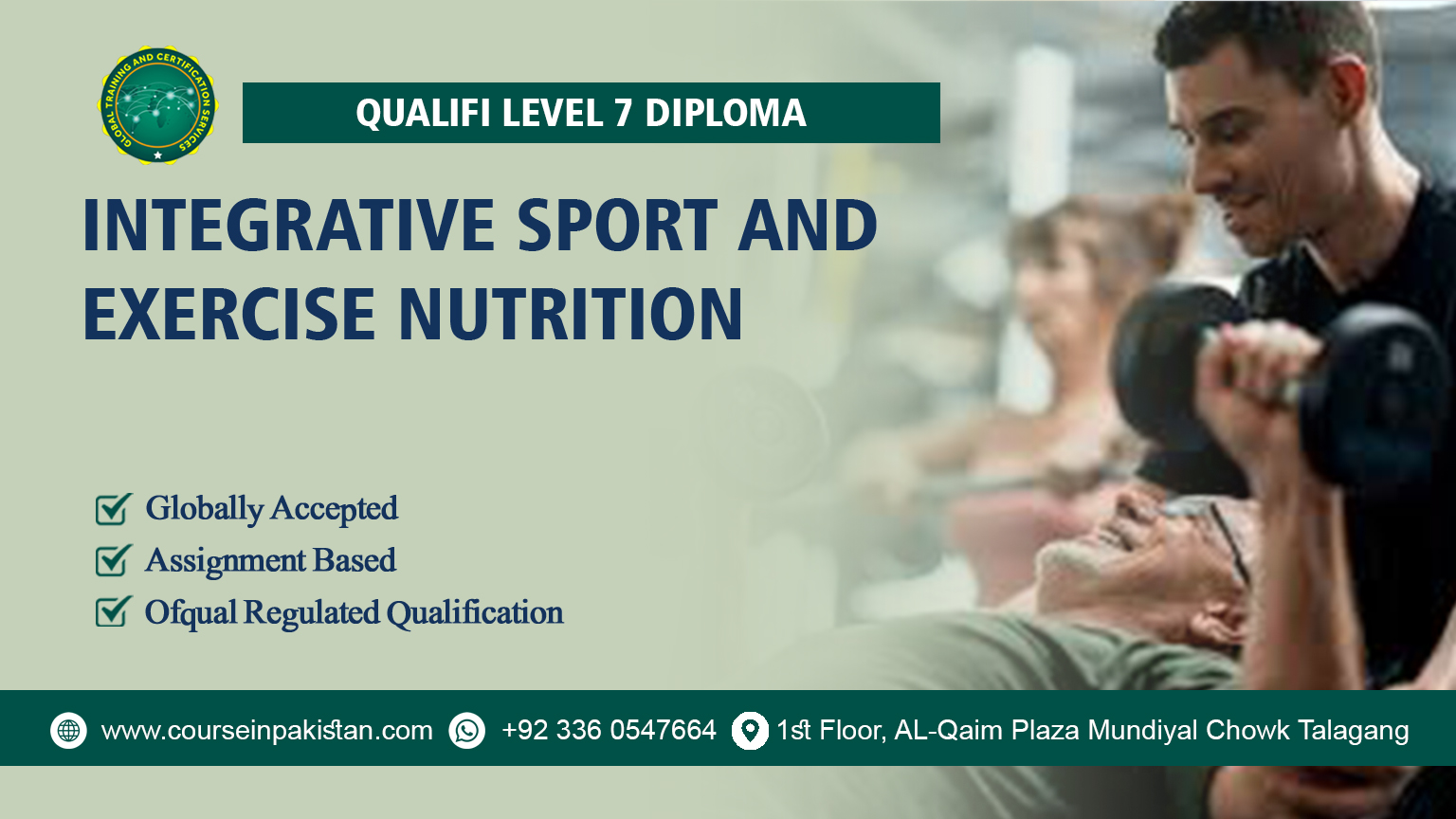
Qualifi Level 7 Diploma in Integrative Sport and Exercise Nutrition
In the dynamic world of sports and exercise, nutrition plays a crucial role in enhancing performance, optimizing recovery, and supporting overall well-being. The Qualifi Level 7 Diploma in Integrative Sport and Exercise Nutrition is designed for individuals passionate about leveraging nutrition science to maximize athletic performance and promote holistic health. This advanced diploma equips professionals with specialized knowledge, practical skills, and the confidence to excel in the field of sports nutrition. Let’s explore what this diploma offers and how it can pave the way for a rewarding career in integrative sport and exercise nutrition.
The Qualifi Level 7 Diploma in Integrative Sport and Exercise Nutrition provides a comprehensive and specialized education in the principles, theories, and applications of nutrition within the context of sports and exercise. It combines theoretical insights with practical applications, preparing graduates to address the unique nutritional needs of athletes, fitness enthusiasts, and active individuals.
This diploma covers a range of critical topics essential for integrative sport and exercise nutrition:
- Nutritional Science: Gain in-depth knowledge of macronutrients, micronutrients, hydration strategies, and their impact on athletic performance and recovery.
- Sports Nutrition Strategies: Learn advanced techniques for meal planning, supplementation, and dietary interventions tailored to individual athlete needs and sport-specific requirements.
- Exercise Physiology: Understand the physiological responses to exercise and how nutrition influences energy metabolism, muscle function, and endurance.
- Nutrition for Special Populations: Explore nutritional considerations for athletes with specific dietary needs, such as vegan athletes, endurance athletes, and those with food allergies or intolerances.
- Research Methods in Nutrition: Develop skills in conducting research, interpreting scientific literature, and applying evidence-based practices in sports nutrition.
The curriculum is designed to be practical and relevant, preparing students to address complex nutritional challenges in sports and exercise settings.
Course Benefits
- Expertise in Sports Nutrition: Acquire specialized knowledge and skills to optimize athletic performance and support the nutritional needs of athletes.
- Career Advancement: Enhance career opportunities in sports nutrition consultancy, sports teams, fitness centers, and wellness programs.
- Hands-on Experience: Gain practical experience through case studies, practical workshops, and real-world application of nutritional principles.
- Professional Recognition: Attain a Level 7 qualification that demonstrates expertise and credibility in integrative sport and exercise nutrition.
- Contribution to Health and Wellness: Make a positive impact on athletes’ health, performance, and overall well-being through effective nutrition strategies.
Course Study Units
The study units typically include:
- Integrative Body Systems in Sports Nutrition
Applied Performance Nutrition
Mentoring and Case Studies Programme
Capstone Research and Project
Hypertrophy for Sport and Exercise
Gastrointestinal and Immune Health in Athletes
Harnessing Mitochondrial Energy for the Athlete
Ergogenic Aids for the Athlete Natural Sports Cookery
‘Healthspan’ – Functional Health of an Ageing Athlete
Health and Physical Success of Female Athletes
Musculoskeletal Nutrition Support in Sport
Relative Energy Deficiency in Sport (REDs)
A Mind-body Perspective in Sport
Each unit builds on foundational knowledge and skills, providing a comprehensive understanding of how nutrition influences athletic performance and health outcomes.
Learning Outcomes
Upon successful completion of the Qualifi Level 7 Diploma in Integrative Sport and Exercise Nutrition, graduates will:
-
1. Integrative Body Systems in Sports Nutrition
- Analyze the interplay between various body systems (e.g., cardiovascular, respiratory, endocrine) and their impact on sports nutrition.
- Apply integrative approaches to optimize nutritional strategies for enhanced athletic performance and recovery.
- Evaluate the role of nutrition in maintaining homeostasis and supporting overall health in athletes.
2. Applied Performance Nutrition
- Develop advanced skills in designing and implementing nutrition plans that optimize performance across different sports and athletic disciplines.
- Utilize evidence-based practices to assess nutrient needs, hydration strategies, and recovery protocols for athletes.
- Apply nutritional periodization principles to enhance training adaptations and peak performance during competition.
3. Mentoring and Case Studies Programme
- Engage in mentoring relationships to enhance coaching and leadership skills in sports nutrition practice.
- Analyze case studies to apply theoretical knowledge and practical skills in real-world sports nutrition scenarios.
- Provide constructive feedback and guidance to mentees to support their professional development in sports nutrition.
4. Capstone Research and Project
- Conduct independent research on a specific topic in sports nutrition, demonstrating critical thinking and analytical skills.
- Synthesize research findings into a comprehensive report or project that contributes to the field of sports nutrition.
- Present research outcomes effectively to peers, faculty, and industry professionals, demonstrating proficiency in academic and professional communication.
5. Hypertrophy for Sport and Exercise
- Explain the physiological mechanisms of muscle hypertrophy and its implications for athletic performance.
- Develop nutrition strategies to support muscle growth and recovery in athletes engaged in strength and power sports.
- Evaluate the effectiveness of dietary supplements and nutritional interventions in promoting muscle hypertrophy.
6. Gastrointestinal and Immune Health in Athletes
- Assess the impact of nutrition on gastrointestinal health and immune function in athletes.
- Develop strategies to optimize gut health and immune resilience through dietary interventions and supplementation.
- Implement preventive measures and nutritional strategies to mitigate the risk of gastrointestinal distress and immune compromise in athletes.
7. Harnessing Mitochondrial Energy for the Athlete
- Explore the role of mitochondria in energy production and metabolic efficiency in athletic performance.
- Develop nutrition strategies to support mitochondrial function and optimize energy metabolism in athletes.
- Evaluate the impact of nutritional interventions on mitochondrial health and athletic endurance.
8. Ergogenic Aids for the Athlete
- Identify and evaluate ergogenic aids, including supplements and nutritional strategies, to enhance athletic performance.
- Critically analyze scientific evidence and regulatory considerations related to ergogenic aids in sports nutrition.
- Provide evidence-based recommendations on the safe and effective use of ergogenic aids to support athletic goals.
9. Natural Sports Cookery
- Demonstrate culinary skills and nutritional knowledge to prepare balanced and nutritious meals for athletes.
- Develop recipes and meal plans that optimize performance, recovery, and overall health using natural ingredients.
- Apply food safety principles and dietary guidelines to promote optimal nutrition and well-being in athletes.
10. ‘Healthspan’ – Functional Health of an Ageing Athlete
- Evaluate the impact of aging on physical function, healthspan, and athletic performance.
- Develop nutrition and lifestyle interventions to support functional health and longevity in aging athletes.
- Implement strategies to optimize nutrient intake, physical activity, and recovery to enhance the healthspan of athletes.
11. Health and Physical Success of Female Athletes
- Explore nutritional considerations specific to female athletes across different stages of the menstrual cycle, pregnancy, and menopause.
- Develop strategies to optimize health, performance, and recovery in female athletes through personalized nutrition plans.
- Address gender-specific challenges and opportunities in sports nutrition to promote long-term health and physical success.
12. Musculoskeletal Nutrition Support in Sport
- Analyze the role of nutrition in musculoskeletal health, injury prevention, and rehabilitation in athletes.
- Develop nutrition strategies to support bone health, connective tissue integrity, and muscle function in sports.
- Evaluate the impact of dietary factors, including micronutrients and hydration, on musculoskeletal health and performance.
13. Relative Energy Deficiency in Sport (REDs)
- Identify risk factors, symptoms, and consequences of relative energy deficiency in athletes.
- Develop strategies to assess and prevent REDs through nutritional interventions and lifestyle modifications.
- Educate athletes, coaches, and healthcare professionals on the importance of balanced energy availability for optimal health and performance.
14. A Mind-body Perspective in Sport
- Explore the influence of mental and emotional factors on athletic performance and well-being.
- Integrate mind-body approaches, such as mindfulness and stress management, into sports nutrition practice.
- Develop holistic nutrition plans that address both physical and psychological aspects of athlete health and performance.
These learning outcomes are designed to equip graduates of the Qualifi Level 7 Diploma in Integrative Sport and Exercise Nutrition with specialized knowledge, practical skills, and a deep understanding of the multifaceted aspects of sports nutrition. Graduates will be prepared to excel in diverse roles, including sports nutrition consultancy, coaching, research, and education, contributing to advancements in athlete health, performance, and well-being.
Who is This Course For?
The Qualifi Level 7 Diploma in Integrative Sport and Exercise Nutrition is ideal for:
- Nutritionists, dietitians, and health professionals seeking specialized knowledge in sports nutrition.
- Coaches, trainers, and fitness professionals aiming to enhance their understanding of nutrition’s role in athletic performance.
- Athletes and sports enthusiasts interested in optimizing their own nutrition for improved performance and recovery.
- Career changers looking to enter the field of sports nutrition consultancy or work with sports teams and organizations.
Future Progression for This Course
Graduates of the diploma program can pursue various pathways for career advancement and professional development:
- Specialization: Focus on specific areas such as elite athlete nutrition, performance enhancement, or clinical sports nutrition.
- Higher Education: Pursue postgraduate studies in sports nutrition, exercise physiology, or related fields to deepen expertise.
- Consultancy and Entrepreneurship: Establish a private practice or consultancy offering specialized sports nutrition services.
- Research and Education: Contribute to research initiatives, educational programs, or public health campaigns focused on sports nutrition and exercise.
the Qualifi Level 7 Diploma in Integrative Sport and Exercise Nutrition equips graduates with the knowledge, skills, and practical experience to excel in the specialized field of sports nutrition. Whether you aspire to work with professional athletes, lead sports nutrition programs, or contribute to research advancements in the field, this diploma provides the foundation for a successful and fulfilling career in integrative sport and exercise nutrition. Embark on this transformative educational journey and empower yourself to make a significant impact on athletes’ health, performance, and well-being through effective nutrition strategies.

